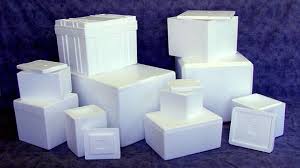Can you picture a tonne of trash? Not a metaphorical, allegorical, “We just had a party and there’s a tonne of trash to pick up,” figure-of-speech ton of trash. A literal, 1,000 kilogram pile of glass bottles, soda cans, fast food packaging, and miscellaneous junk carelessly discarded by the side of the road? Well, at Passions of Paradise we can, because we celebrated World Rivers Day this past Sunday by cleaning up one of Cairns waterways, and we picked up 900 kilograms—close to a tonne—of miscellaneous items including car tyres, cassette radios, and even half a bicycle.
One of the most common items we encountered was polystyrene foam, which is often used as a cushion when large items are packaged. This type of rubbish can have devastating effects on the environment, because it takes a long time to biodegrade. Depending on the specific type of polystyrene, this type of material can take hundreds of years to break down. Once this material is in the ecosystem, it is often mistakenly eaten by animals, with devastating effects; as the plastic and petro-chemicals slowly break down, they realise toxic by-products. These chemicals and large pieces of debris enter the marine or terrestrial food chain, and animals die either by chocking on the pieces, eating contaminated food, or eating other animals that have died from the toxins.
So what can you do? The answer is quite simple: Just say no. While polystyrene has been banned in some countries, the first being the United States as far back as 1988, different types of packaging, such as plates and cups, are still sold throughout the world and used for picnics or as take-away food containers. So just say no. Avoid businesses that serve drinks and food in to-go Styrofoam cups or containers. Buy picnic tableware and cutlery made out of recyclable paper or plastic, or better yet, invest in a picnic set with re-useable plates and cutlery. And most importantly, be active: If you see a piece of Styrofoam or other type of polystyrene (or any litter) take 2 seconds and put it in a bin or recyclable container. These small acts can add up to a big difference.

